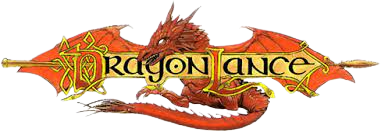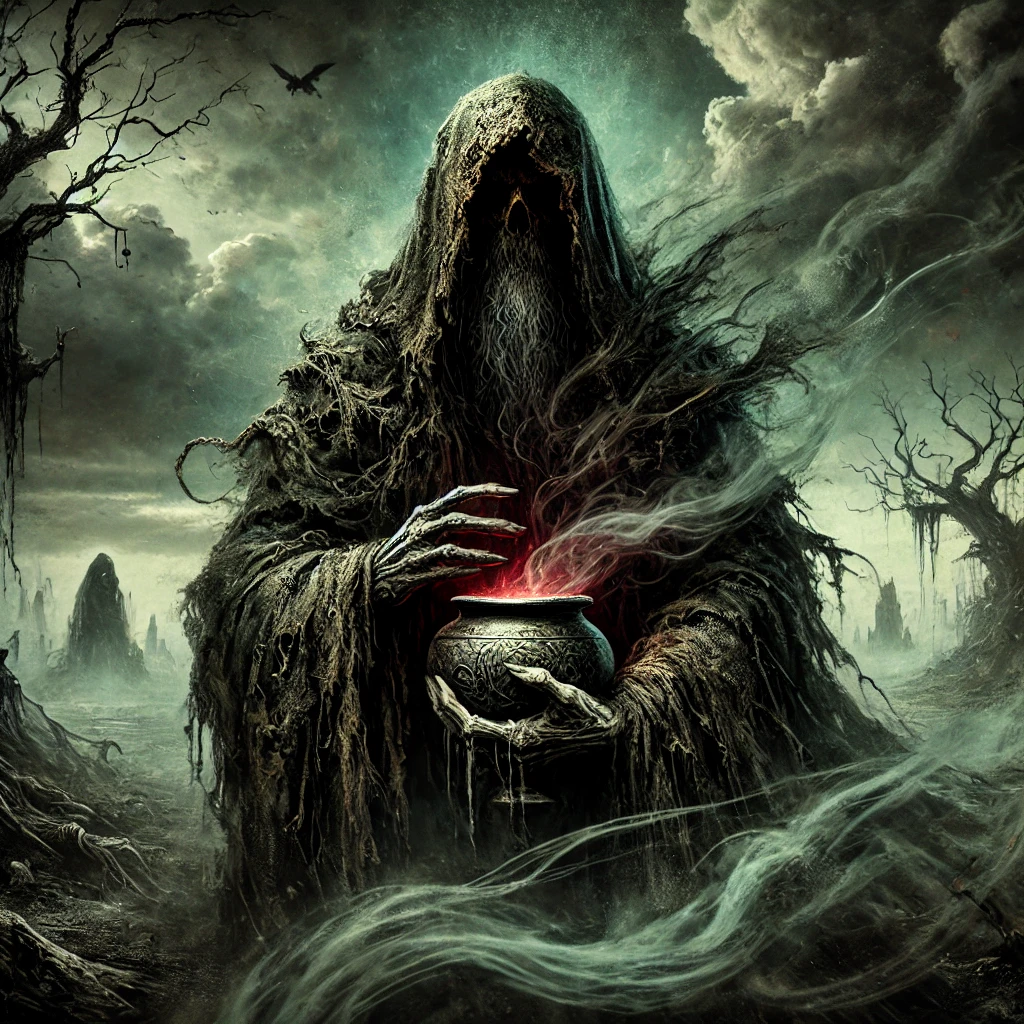Morgion, the Black Wind
Table of Contents
ToggleIntroduction
In the world of Dragonlance, where gods shape the fates of Krynn, Morgion lurks unseen, spreading pestilence, madness, and corruption. Known as the Lord of Disease, the Master of Decay, and the Bringer of Plague, Morgion is the divine embodiment of suffering, despair, and the slow, inevitable decline of all things.
As one of the Gods of Evil, Morgion does not seek power or conquest like Takhisis nor wealth and deception like Hiddukel. Instead, he thrives in the quiet rot, the lingering sickness, and the creeping madness that festers in both body and mind. His touch is felt wherever disease spreads, crops wither, and the will of mortals is broken by despair.
Origins and Role Among the Gods
Morgion was created by the High God, but unlike the gods of healing and wisdom, his purpose was to remind all things of their impermanence. While Mishakal heals and Majere teaches discipline, Morgion whispers hopelessness, infecting the minds and bodies of Krynn’s people with plague, doubt, and insanity.
He hates healing, mercy, and knowledge, for they delay the inevitable. He despises Mishakal’s light, seeing her work as a futile attempt to deny what must come to pass—that all things decay, all flesh rots, and all minds succumb to madness.
Domains and Influence
Morgion is the god of:
- Disease and Plague – Spreading sickness across the land.
- Decay and Rot – The slow corruption of the body, mind, and soul.
- Madness and Despair – Driving mortals to insanity and hopelessness.
- Secrecy and Hoarded Knowledge – Hiding the cures that could save lives.
His influence is strongest in sickly villages, ruined lands, and the minds of those who lose hope. His followers do not seek conquest—they let the world rot from within, untouched by honor, compassion, or ambition.
Morgion’s Followers and Their Ways
Unlike other gods, Morgion does not openly gather followers—he hates being named, spoken of, or prayed to in the open. Instead, his faithful serve him in secret, believing that the strong survive through suffering, and the weak must perish.
His followers include:
- Plaguebearers and Cultists – Those who spread sickness in his name.
- Mad Seers and Hermits – Those who hear his whispers and go insane.
- Poisoners and Alchemists – Those who twist nature’s gifts into deadly plagues.
- Tyrants and Warlocks – Rulers who hoard medicine and keep their people in sickness to control them.
To worship Morgion is to embrace suffering as power, to reject healing as weakness, and to spread decay so that only the truly strong survive.
Symbols and Worship
Morgion is rarely depicted in art, for his name alone is a curse. When he is shown, he appears as a shadowed figure cloaked in tattered rags, his face forever hidden beneath a deep hood. His hands are withered and skeletal, and his breath reeks of death and disease.
His sacred symbols include:
- A rotting skull – Representing death through sickness.
- A black sun – Symbolizing the slow death of light and hope.
- A broken chalice – A sign of poisoned water, the spreader of plagues.
Temples to Morgion do not exist in public, for even his worshippers fear what he represents. Instead, his faith is practiced in dark caves, plague-ridden ruins, and hidden sanctuaries where sickness festers.
Worship and Rituals
Morgion’s followers do not pray for blessings—they spread suffering as a form of devotion. To truly honor Morgion, one must deny healing, embrace disease, and let corruption fester.
Key rituals include:
- The Withering Vow – A pledge where a follower accepts a permanent affliction in exchange for Morgion’s power.
- The Feast of Decay – A ritual meal where food is deliberately left to rot before being eaten.
- The Blighted Touch – A ceremony where the faithful infect themselves with disease to prove their devotion.
His greatest commandment is to hoard cures and knowledge, keeping salvation from those who do not deserve it.
Allies and Rivals Among the Gods
As a God of Evil, Morgion finds kinship with:
- Chemosh, the god of undeath, who ensures that sickness does not always lead to peace in death.
- Hiddukel, the god of greed, who profits from the desperation of the sick.
- Takhisis, the Queen of Darkness, who values suffering as a means of control.
However, he despises:
- Mishakal, goddess of healing, who constantly undoes his work.
- Majere, god of discipline, whose monks resist his whispers of madness.
- Chislev, goddess of nature, whose wild lands refuse to submit to his corruption.
Morgion in Legends and Stories
The Cursed Village
One of the most feared legends of Morgion speaks of a village that once refused to honor him. Its people destroyed an altar to the god, laughing at the idea of plague ever reaching their fertile lands.
The next morning, the crops rotted overnight, and the wells turned black with poison. One by one, the villagers fell to sickness, and within a week, none remained. To this day, no one dares rebuild where the village once stood, for Morgion never forgets a slight.
The King Who Hoarded Medicine
Another tale tells of a king who made a secret deal with Morgion, offering his soul in exchange for immunity to all disease. Morgion granted his wish, and the king became untouched by sickness. However, in his cruelty, he hoarded all medicine and let his people die.
Over time, he became a walking corpse, his flesh rotting while his soul remained trapped within his body—immortal, but forever decayed.

